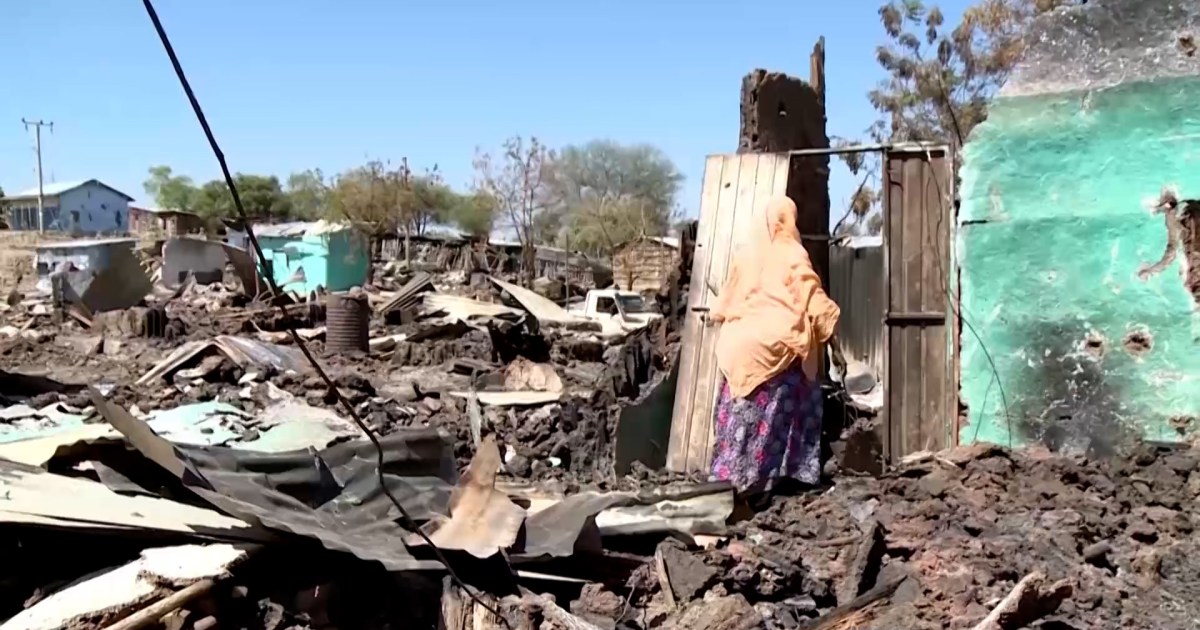Addis Ababa announced on Wednesday that the Ethiopian army cut supply lines to the Tigray Liberation Front and its allies after taking control of areas in the Amhara region, and this development comes amid fierce battles between the two parties.
The director of the Government Communications Office in the Amhara region told the island that the Ethiopian government forces took control of the city of Lalibela, which includes ancient rock-hewn churches on the UNESCO World Heritage List, and is a sacred site for millions of Ethiopian Orthodox Christians, during the ongoing military operations led by Prime Minister Abiy Abiy. Ahmed himself.
Prime Minister Abiy Ahmed's office also said in a tweet on Twitter that "the historic town of Lalibela has been liberated and freed from the occupation of the Tigray People's Liberation Front."
The office added that the Ethiopian forces are now controlling the town of "Shwarbet" (220 kilometers northeast of Addis Ababa) and eight other towns and villages, pointing to the "liberation" of the Mizezu, Mulali and Rasa regions from the forces of the Tigray Front.
After the historic town of Lalibela and its international airport, the army is heading to the city of Sekota in Amhara, according to the Ethiopian government's media office, amid fierce battles between the two sides of the conflict.
The government had announced its control over several cities, towns and villages in the south, north and west of Amhara region during the military campaign it launched against the Tigray Front militants.
A government spokesman stated that the army forces had taken control of 15 towns on 4 fronts, most notably the town of (Shwarbet), which halted the Tigray Front's plans to advance towards the capital, Addis Ababa.
On the other hand, the Tigray Liberation Front talked about the continuation of the battles, and expressed its concern in a letter to the United Nations about the interference of non-African countries in the war.
The front accused the government forces of targeting a dam that provides electricity to the Tigray region (northwest of Ethiopia).
Earlier, Al-Jazeera correspondent, who is currently on the "Casa Geeta" front in Afar region (northeastern Ethiopia), reported that the federal army had sent military reinforcements towards Amhara region after tightening its control over all of Afar.
A blow to the Tigray front
The progress made by the Ethiopian army in the Afar and Amhara regions would deal a strong blow to the Tigray Liberation Front and its allies from the Oromo and other ethnic groups.
The Tigray Front was planning to advance from Amhara south towards the capital, or advance east and threaten the main supply route linking Ethiopia with Djibouti.
Before the Ethiopian Prime Minister headed a week ago to the battlefronts, the allied forces against his government were now 220 kilometers from the capital, Addis Ababa, and they fought battles to control strategic roads in the north.
The rapid progress of the forces of the Tigray Front and its allies prompted Western countries, led by the United States, to call on their nationals to leave Ethiopia immediately.
humanitarian trips
Meanwhile, United Nations Secretary-General Antonio Guterres said today that the international organization's humanitarian flights between Addis Ababa and the city of Mekli - the capital of Tigray-Mekele region - have resumed, noting also that 157 aid trucks have arrived in this city.
In statements to reporters at the organization's headquarters in New York, Guterres again called for an immediate cessation of the fighting in Ethiopia, and for the unimpeded access of humanitarian aid to the affected areas.
Earlier today, the Chinese Foreign Minister arrived in Addis Ababa, and the visit comes at a time when Beijing confirmed its refusal to interfere in Ethiopia's internal affairs.
The fighting has escalated recently despite US and African mediation attempts, and warnings of the fragmentation of Ethiopia as a result of armed conflict on an ethnic basis.

